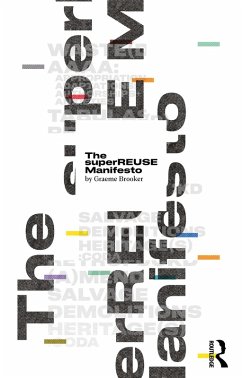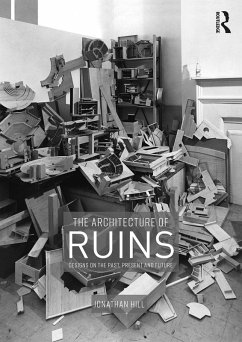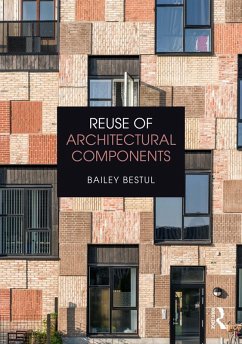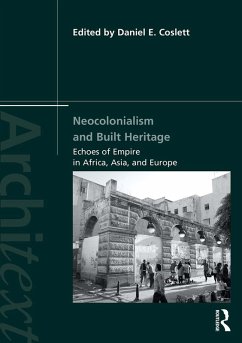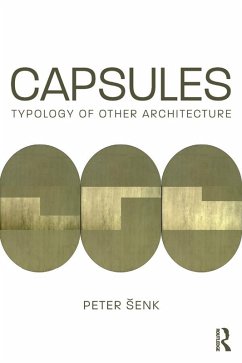
New Museum Design (eBook, PDF)

PAYBACK Punkte
23 °P sammeln!
New Museum Design provides a critical and compelling selective survey of contemporary international museum design since 2010. It provides an accessible and analytic review of the architectural landscape of museum and gallery design in the 2010s.The book comprises twelve case study museum and gallery projects from across Europe, Asia, North America, Africa, the Middle East and Australia. Each built example is interrogated through an essay and a series of beautiful supporting illustrations and drawings. Where appropriate architectural analysis is cross-scale, extending from consideration of the ...
New Museum Design provides a critical and compelling selective survey of contemporary international museum design since 2010. It provides an accessible and analytic review of the architectural landscape of museum and gallery design in the 2010s.
The book comprises twelve case study museum and gallery projects from across Europe, Asia, North America, Africa, the Middle East and Australia. Each built example is interrogated through an essay and a series of beautiful supporting illustrations and drawings. Where appropriate architectural analysis is cross-scale, extending from consideration of the artefact's encounter with museum space at the most intimate scale, through detailed architectural readings, to the wider perspective of urban/landscape response. Similarly, the book is not confined in its thematic or architectural 'typological' scope, including museums and art galleries, as well as remodellings, extensions and new build examples.
New Museum Design provides a critical snapshot of contemporary international museum architecture, in order to: better understand reasons for the state of current practice; reveal and explore on-going themes and approaches in the field; and to point towards seminal future design directions. This book is essential reading for any student or professional interested in museum design.
The book comprises twelve case study museum and gallery projects from across Europe, Asia, North America, Africa, the Middle East and Australia. Each built example is interrogated through an essay and a series of beautiful supporting illustrations and drawings. Where appropriate architectural analysis is cross-scale, extending from consideration of the artefact's encounter with museum space at the most intimate scale, through detailed architectural readings, to the wider perspective of urban/landscape response. Similarly, the book is not confined in its thematic or architectural 'typological' scope, including museums and art galleries, as well as remodellings, extensions and new build examples.
New Museum Design provides a critical snapshot of contemporary international museum architecture, in order to: better understand reasons for the state of current practice; reveal and explore on-going themes and approaches in the field; and to point towards seminal future design directions. This book is essential reading for any student or professional interested in museum design.
Dieser Download kann aus rechtlichen Gründen nur mit Rechnungsadresse in A, B, BG, CY, CZ, D, DK, EW, E, FIN, F, GR, HR, H, IRL, I, LT, L, LR, M, NL, PL, P, R, S, SLO, SK ausgeliefert werden.







